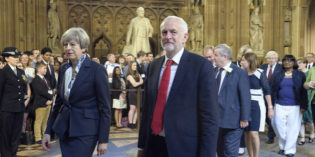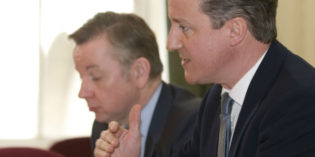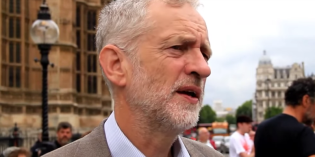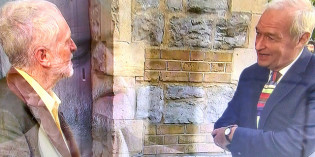Tag: Political Parties

The illusionary norm of political stability: the unruly democratic politics of the United Kingdom
Democratic politics in the UK is currently rife with conflict because this multi-national state encourages it, writes Helen Thompson (University of Cambridge). Maintaining political stability has historically required prudence and pragmatic restraint. Minority governments and more frequent elections have occurred when the UK’s economic and political relationships with the rest of the world are disputed, and […]

Form a party or start a pressure group? The choice facing nascent political movements
When you’re an under-represented group, changing policy is hard. Do you form a party or start a pressure group? Disagreements about the best way forward have historically riven the Green movement in both France and the UK. Ben Farrer (Knox College) explains why activists need to think about how national institutions in their country work […]

New parties, new movements: but how much say do party members get?
The Political Party Database Project has analysed the workings of 122 political parties in 19 parliamentary democracies. Remarkably, the vast majority share a common model of subscriber democracy: members join at a local level and enjoy a certain amount of say in the party’s direction. But in recent years a wave of new political movements, […]

How the Eurosceptics brought down David Cameron: a serious case of supplier lock-in
David Cameron’s decision to call a referendum on the EU was the result of intense Eurosceptic pressures from both within and outside his party. He found himself with little scope for manoeuvre as Ukip gained support and his backbenchers threatened rebellion. Pascal D König looks at what a competition theory usually applied to business can reveal […]

The empathy gap: understanding why some people don’t vote
Not everyone votes. Using data from the 2015 Finnish National Election Study, Kimmo Grönlund and Hanna Wass look at what factors make a person less likely to go to the polls or get involved in politics. They warn against assuming non-voting is a matter of personal choice and suggest ways to overcome the ‘solidarity deficit’ that emerges […]

Political parties which operate in a direct democratic context tend to have a higher number of members
Jeremy Corbyn’s leadership of the Labour Party has seen him crowdsource questions for his weekly parliamentary question time with David Cameron, with many praising both this and his other attempts to democratise the Labour Party’s operations. Here, Yvette Peters looks at the impact of direct democracy on party membership, finding that political parties which operate […]

How democratic are the UK’s political parties and party system?
As part of the 2017 Audit of UK Democracy, Sean Kippin, Patrick Dunleavy and the DA team examine how democratic the UK’s party system and political parties are. Parties often attract criticism from those outside their ranks, but they have multiple, complex roles to play in any liberal democratic society. The UK’s system has many […]

Corbyn’s election was an organisational phenomenon that raises profound questions about political party ownership
Changes to the way the Labour leader is elected were an essential factor in Jeremy Corbyn’s victory. Meg Russell explains how the switch to a ‘one member one vote’ system was a fundamental change for the party – and for British politics – with last summer’s events raising profound questions about party democracy. This text is adapted […]

Ideology is in the eye of the beholder: How British party supporters see themselves, their parties, and their rivals
Although the number of voters prepared to declare an affinity to a political party has shrunk over the last halfcentury, they still represent a substantial slice of the electorate. Here, Tim Bale, Paul Webb and Monica Poletti show that the gap between where strong supporters of Britain’s top six political parties place themselves ideologically and where they […]

Jeremy Corbyn’s rise shows the true value of political parties
The process that led to the election of Jeremy Corbyn was so important because it questioned the model of political parties as electoral machines. It showed that a party can be a living association, writes Lea Ypi. Similar PostsCelebrate the transformation of the Labour Party, not the individual who happens to speak for itLabour Party […]


 Democratic Audit's core funding is provided by the Joseph Rowntree Charitable Trust. Additional funding is provided by the London School of Economics.
Democratic Audit's core funding is provided by the Joseph Rowntree Charitable Trust. Additional funding is provided by the London School of Economics.